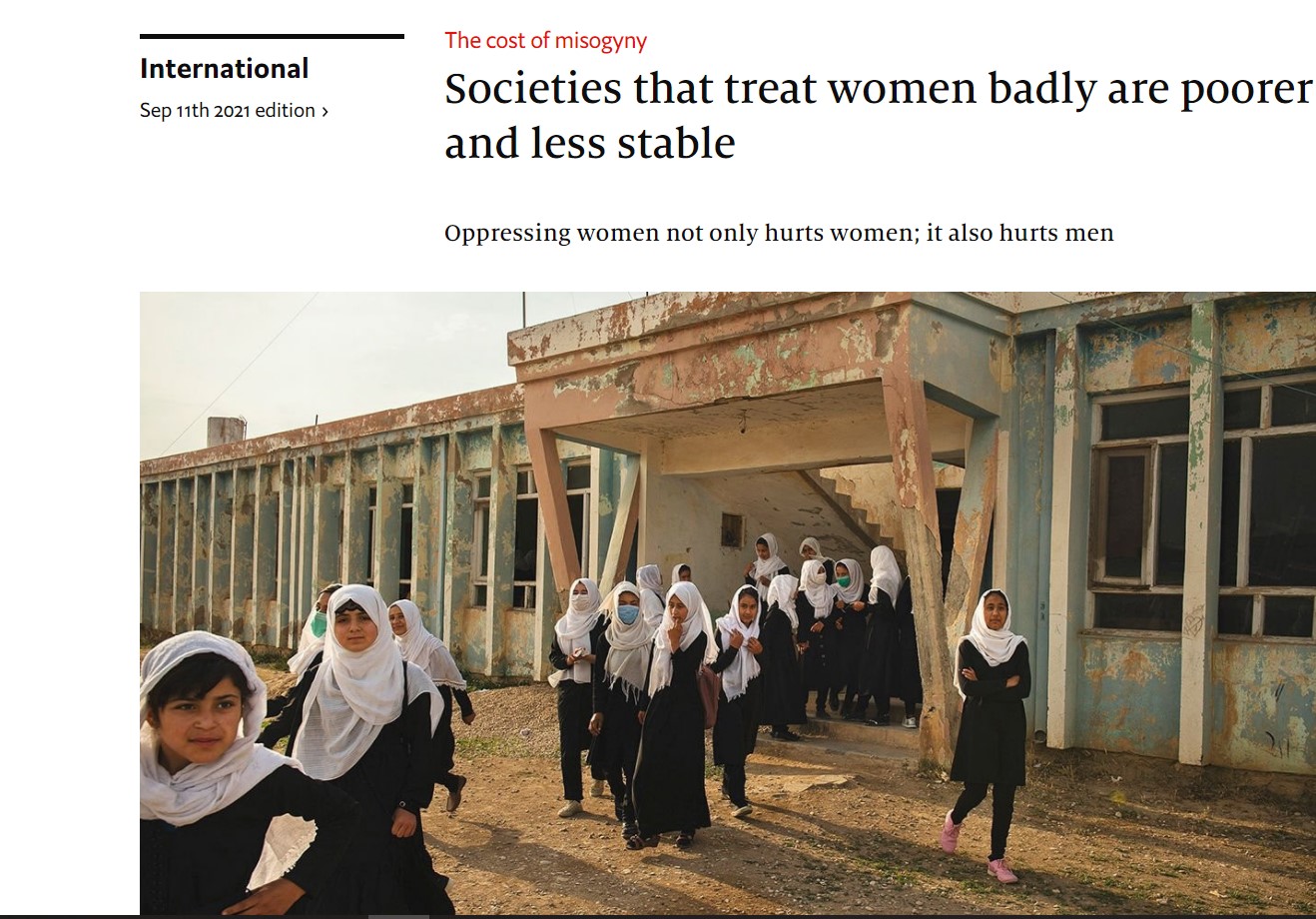It was International Women’s Month in March, and it was International Women’s Day on March 8. So, aside from covering the ongoing crisis in Ukraine and the Covid-19 pandemic, the world’s media has been focused on women and their achievements in a number of fields.
The Economist, a British weekly news magazine, even went so far as to publish an article that declared “Societies that treat women badly are poorer and less stable.”
Given that I live in an advanced economy, much of the conversation on women centred around the need to continue shattering the glass ceiling.
In my LinkedIn feed, most of the stories on women were told by women in corporate positions who were either talking about how they were treated as nothing better than the secretary, or about how people have assumed they were the most junior person in the room when they are, in fact, the most senior.
To give credit where credit is due, women in Singapore have made great strides in the corporate sector. My grandfather’s generation considered it degrading for the husband if the wife worked for a living, but mine understands that both parties hold jobs and only those earning extreme amounts of money can afford to have stay-at-home wives.
So, in modern Singapore, it’s understood that women will earn their own money. When we talk about women in the workforce, it’s more of a question of providing opportunities for advancement rather than opportunities per se.
In an advanced economy, the issue is about getting used to the idea that women can be bosses. One of Covid’s tragedies is that it didn’t force us out of the assumption about women not being able to lead, despite the obvious fact that countries run by women (Germany under Angela Merkel, New Zealand under Jacinda Ardern, and Finland under Sanna Marin) did considerably better than those run by men – specifically the chest-thumping macho variety (Donald Trump in the USA, Narendra Modi in India, and Jair Bolsonaro in Brazil.)
Despite the obvious, there are people who still see “bluster” as “strength.” Modern global culture tends to prioritise the show of strength rather than actual strength. Hence, you get a system where weaklings yell and scream to show strength, but flee the moment a cat meows in their direction.
While women are generally expected to “look pretty”, they are spared the expectation of having to create a lot of noise. Hence, when given the chance, women focus on getting things done. Interestingly enough, this is most obvious in developing countries.
Take Vietnam as an example. Walk the streets of Hanoi or Ho Chi Minh City and you will notice a hive of entrepreneurial activity. Every street corner will have a noodle stall or a mini-spa. Upon further observation, you will observe that all this entrepreneurial activity is done by women.

This is not unique to Vietnam. If you watch enough travel videos, you’ll notice it is the women trying to make a living in the marketplace in most developing nations.
Telling generations of women to look after the household has also extended beyond the material. As anyone who has travelled from Singapore into Malaysia accompanied by someone with a non-Singaporean or Malaysian passport will tell you, you will run the risk of being shaken down for a bribe on the Malaysian side of the border.
The people doing the shakedown are inevitably men. The women, particularly those wearing the tudung (headscarf worn by devout Muslim women) never ask for a bribe.

This is not to say that women are intrinsically more honest. As any Bangladeshi or Pakistani will tell you, women in power like the two Begums of Bangladesh or Benazir Bhutto in Pakistan are capable of the contrary.
However, it seems that at ground level, it’s the women who do the work and earn their money without taking shortcuts.
It’s often stated that the Malaysian officers are tempted to look for bribes because they’re not paid very much and are placed in a position of power over travelling Singaporeans who inevitably earn much more.
A bribe is around RM50 or about S$16 – the cynical might call this a win-win – a decent subsidy for the Malaysian and pocket change or the thrill of being able to use the money to solve problems for the Singaporean without being punitive.
However, one has to wonder: Why is it that the women face the same temptations as their male counterparts yet are never the ones to shake you down?
It’s been said that for women to scale the corporate ladder, they need to become more “showy” or openly “aggressive” as men. Think of “successful” women leaders like Margaret Thatcher and how “masculine” toughness is ascribed to the “Iron Lady”.
Whilst there is some truth to this in the short term, the more sustainable way to promote women is to recognize them for the qualities they bring to the table. If you look at Mrs Thatcher as an example, you’ll find that she didn’t behave like a “macho man” but more like an effective housewife. One could argue that her success as Prime Minister came from the fact that she ran the country as well as she ran the household.
Instead of trying to make women more like men, we should be promoting women for being very good at what they do as women. Women have shown themselves to be good at doing things like holding down a job and keeping the house in order at the same time. We should be celebrating these qualities and promoting them, rather than pushing women to be more like men.
A version of this article first appeared at beautifullyincoherent.blogspot.com
Jamus Lim salutes his ‘Queen’ — and all women in his life — on International Women’s Day


